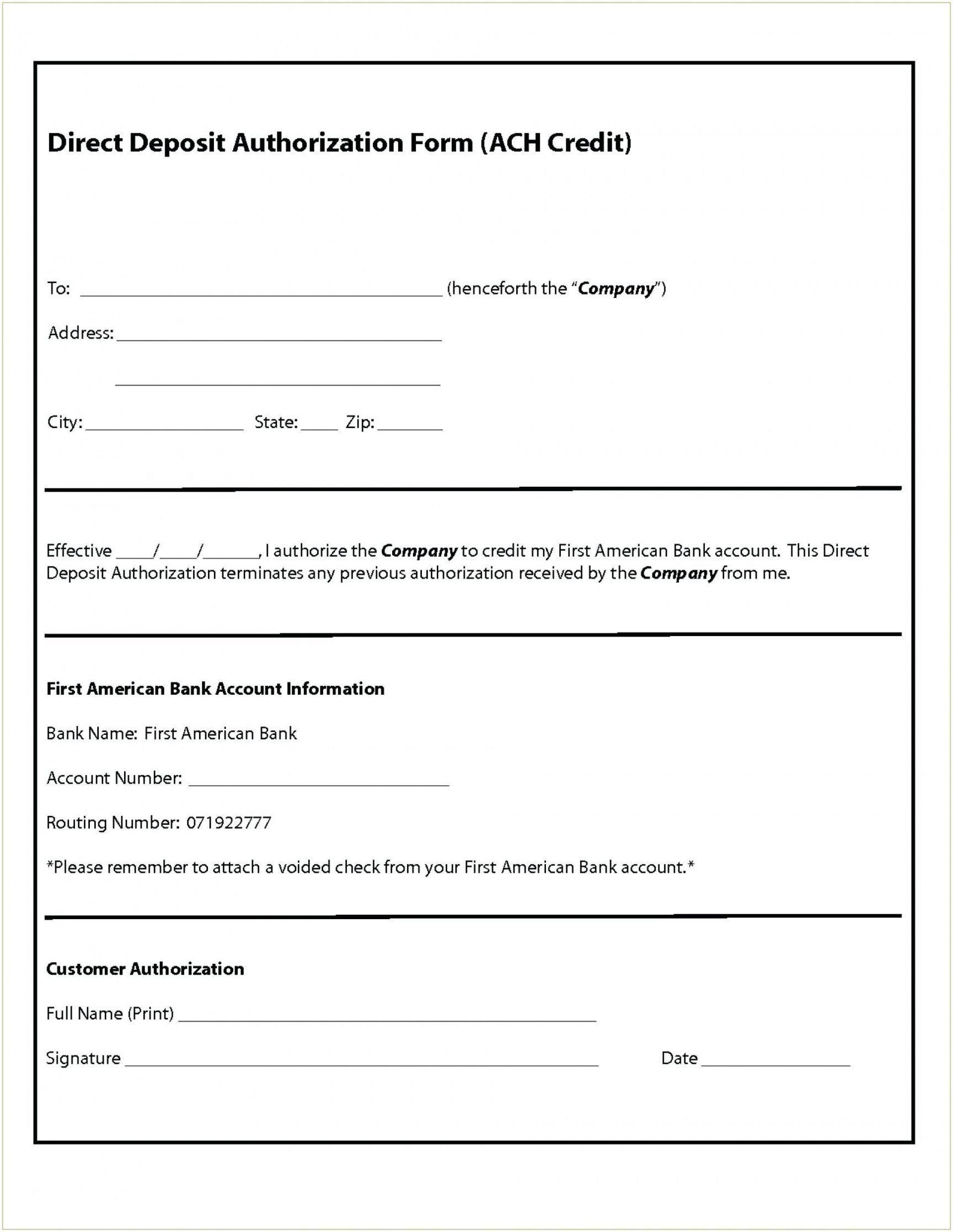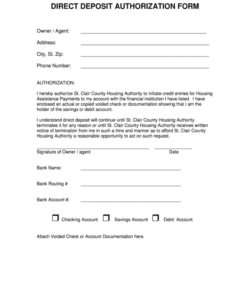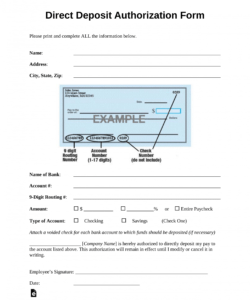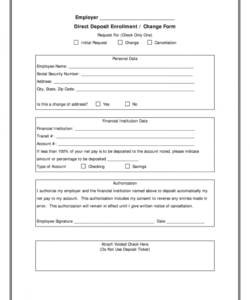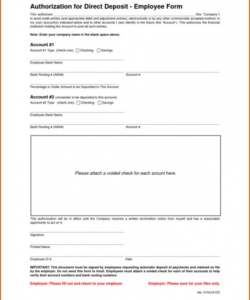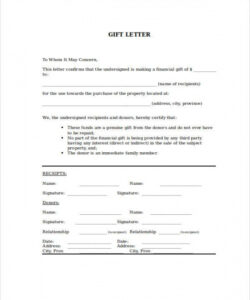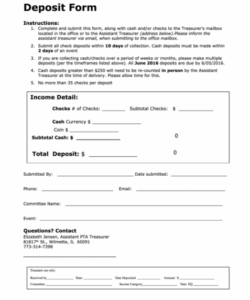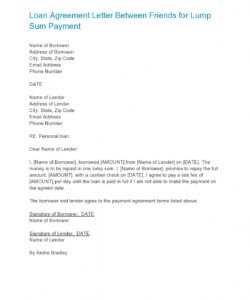Generic direct deposit authorization form, A lot of money management lessons and experts admit that savings are a significant starting point towards having a secondary earnings. Savings in this respect point to the money that’s saved each time someone receives any form of cash be it salary, gifts or tax refunds. The savings you produce over a lengthy period of time or possibly a shorter one could end up being as important as having another flow of revenue. These savings consistently help you particularly in meeting unexpected expenses and realizing potential objectives.
It’s common to find people disinterested in Certificates of Deposits or CDs. Most people don’t realize that there’re several investment choices that fall between the range of savings account and stock industry. Such options often offer guaranteed returns on investment and also don’t require a large capital for investment. Certificates of Deposits are among those investments. Certificates of deposit are savings deposit balances of particular type where a promissory note is issued from the bank. Technically they are not investment accounts, but still they provide interest rates higher than the standard savings accounts. It is going to be better to call these notes”timed deposits” that come with the limitation of not withdrawing the money before adulthood. Interest earned is returned into the certificate holder on maturity of CD. Interest may be compounded daily, monthly or yearly based on the type of CD that you choose.
A landlord has 28 days to register a deposit with a custodial or insurance type strategy. Info concerning the registration of this deposit must be provided to the tenant. Under the Housing Act there is a prescribed format for information to be supplied. The landlord could be taken to court by the tenant in which the information hasn’t been supplied in the correct format. Tenants have the right to return six years before taking action against the landlord.
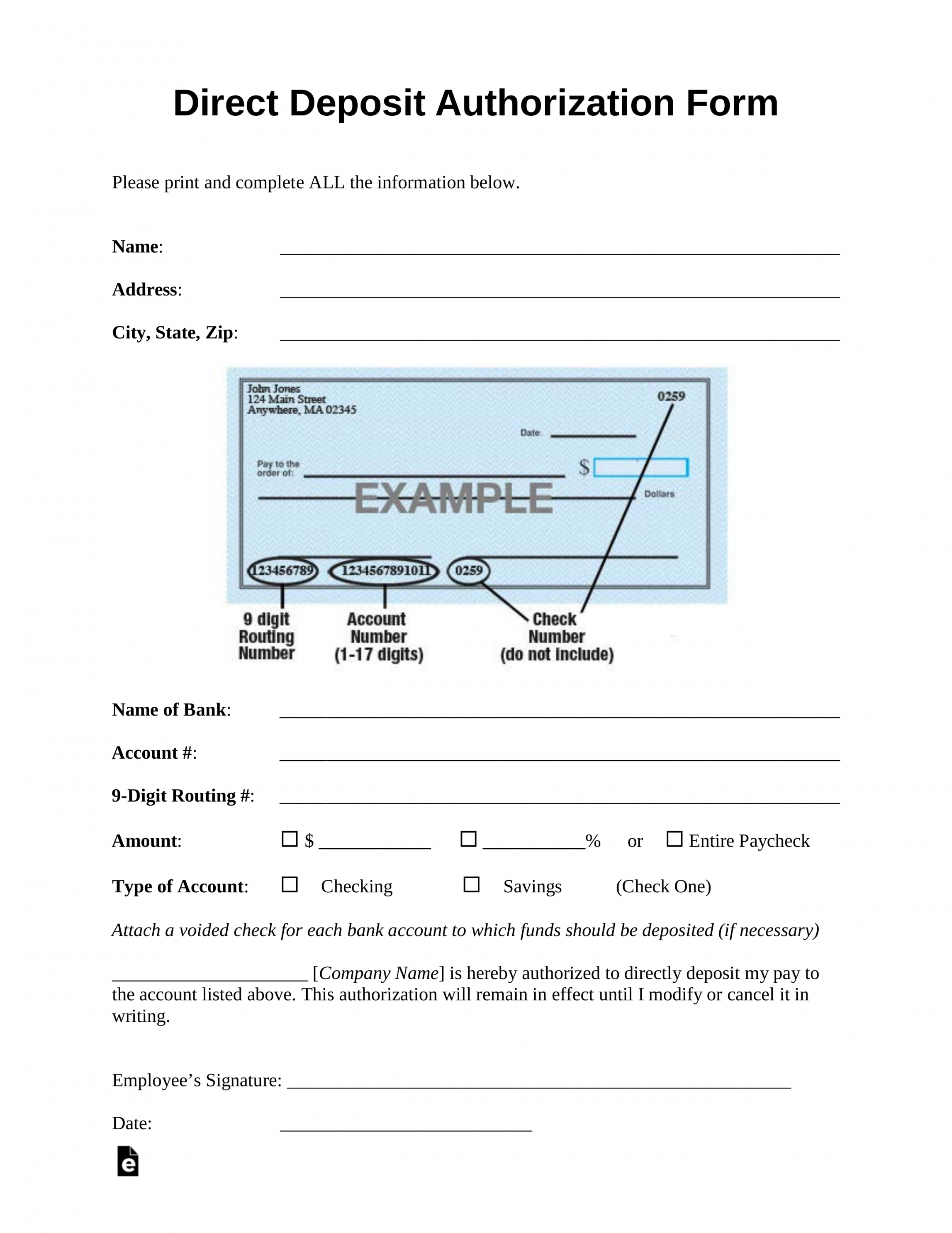
Where the landlord fails to enroll the bond there are penalties. The landlord can be required to pay the tenant a sum three times greater than the deposit; or they can be required to pay back all lease and a punishment or the landlord may lose the right to evict the tenant in the property the choice on the penalty is accepted by the court. Some landlords say they don’t take deposits that they just ask the tenant to pay two months rent in advance. If the tenant pays rent monthly along with the landlord always has a float of one month’s rent this is just like taking a deposit along with the principles concerning failure to register a deposit will apply.

